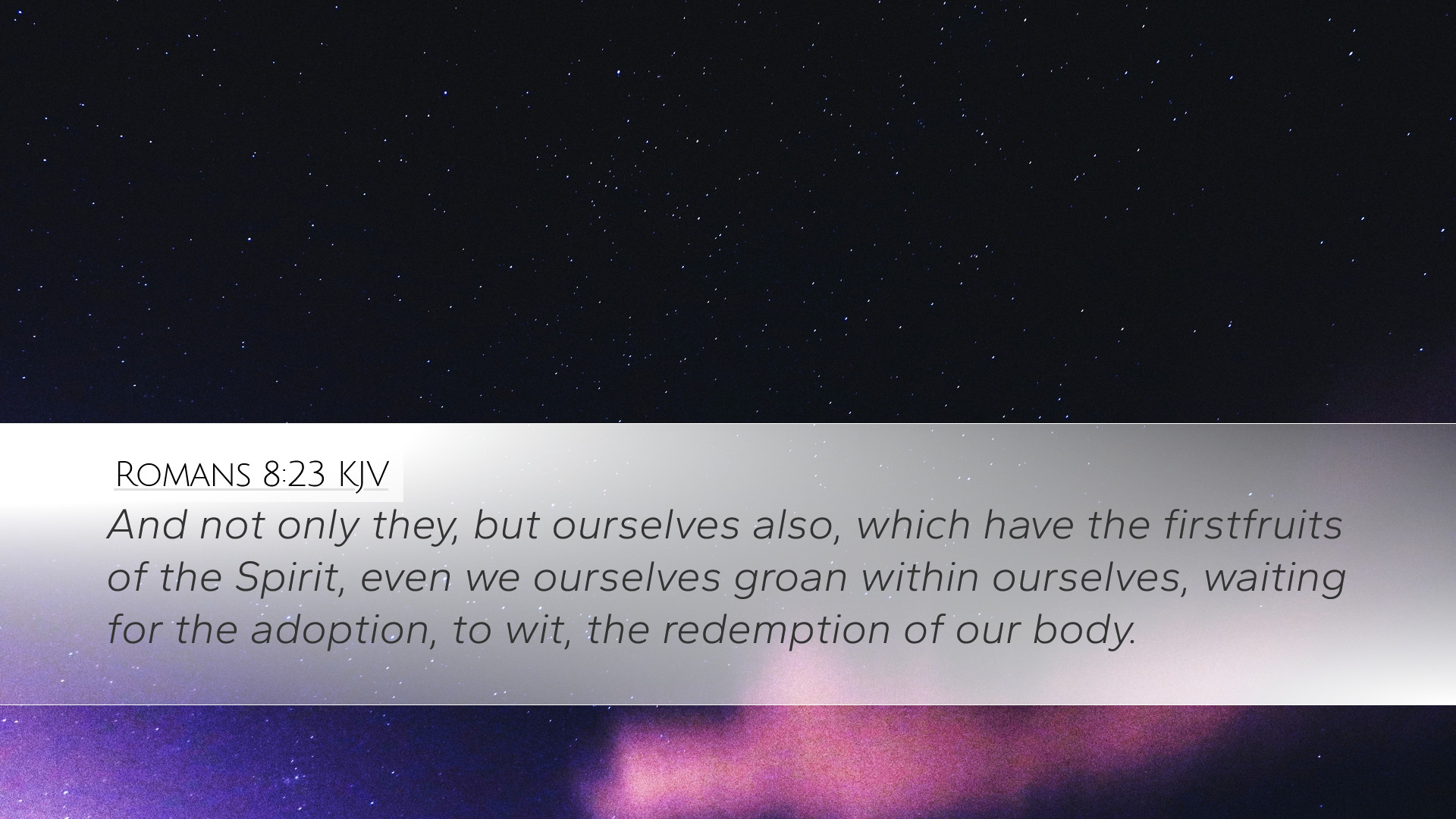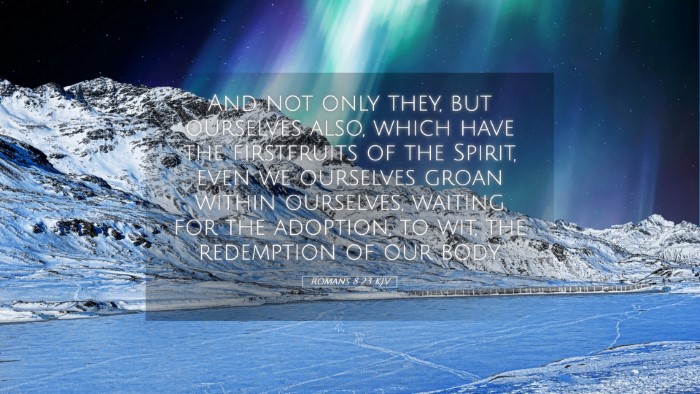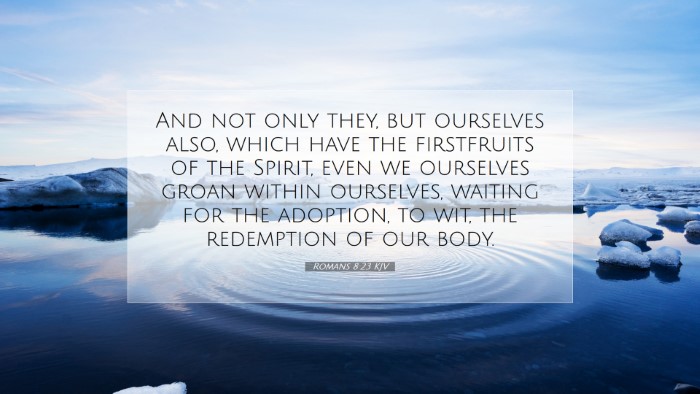Commentary on Romans 8:23
Verse: "And not only they, but ourselves also, which have the firstfruits of the Spirit, even we ourselves groan within ourselves, waiting for the adoption, to wit, the redemption of our body." (Romans 8:23, KJV)
Introduction
The Apostle Paul, in Romans Chapter 8, elaborates on the theme of hope amidst suffering, emphasizing the role of the Holy Spirit in the lives of believers. In verse 23, he specifically addresses the dual groaning of creation and the believers as they await redemption. This verse recognizes the tension between present suffering and future glory, encouraging believers to remain steadfast in hope.
Commentary Insights
1. The Context of Groaning
Matthew Henry notes that "the creation groans" in anticipation of redemption and that this groaning is a response to the present state of decay and corruption. In Romans 8:22, Paul writes about the earth's suffering due to sin entering the world. This reflects not only the physical sufferings but also the emotional and spiritual anguish created by human rebellion.
Henry emphasizes the unity within creation, stating that all things are connected and long for restoration. This underscores the biblical view that creation, including humanity, is in a state of longing for its true purpose.
2. Firstfruits of the Spirit
Albert Barnes elucidates the phrase "firstfruits of the Spirit," suggesting that the initial experience of the Holy Spirit in a believer’s life is a foretaste of what is to come. He stresses that these firstfruits represent a significant down payment of the more profound blessings that await believers.
This concept helps understand the anticipation mentioned in this verse. While believers experience the Spirit’s work now, they are simultaneously called to await the fullness of their inheritance—complete redemption that encompasses their bodies as well.
3. Waiting for Adoption and Redemption
Adam Clarke points out that "waiting for the adoption" signifies a mature form of anticipation that is active rather than passive. To await redemption is to recognize that current suffering has a purpose and that the believer’s identity in Christ signifies an assurance of future glory.
Clarke argues that this waiting is essential for spiritual maturity and growth in faith. The term "redemption of our body" alludes to the transformation and glorification that is promised to believers when Christ returns. Such understanding fosters patience and perseverance in the present trials.
4. The Human Experience of Groaning
The apostle Paul uses the metaphor of groaning to illustrate the deep longing that exists within believers. Both Henry and Barnes affirm that this deep-seated groaning is a natural response to the brokenness of the world and the human condition. It echoes the sorrow and weariness experienced through tribulations, yet it also reflects an inner assurance of future glory.
This inner groaning serves as a reminder of the believer’s dual existence: being redeemed in spirit while still longing for the physical fulfillment of that redemption. It encapsulates the Christian experience of living in a "now and not yet" reality.
5. Theological Implications
Theologically, Romans 8:23 addresses eschatological hope—looking forward to the ultimate fulfillment of God’s promises. It presents a framework for understanding suffering in the light of hope. The connotation of waiting implies trust in God’s promises.
Paul’s emphasis on "the redemption of our body" invites reflection on the resurrection—a core tenet of Christian belief. This highlights that salvation is not merely a spiritual reality but is also intertwined with physical redemption, affirming the goodness of creation through Christ’s resurrection.
Conclusion
In summary, Romans 8:23 captures the essence of the Christian journey characterized by both present suffering and future hope. Believers are invited to join in the groan of creation, bearing the firstfruits of the Spirit while anticipating the complete adoption and redemption that awaits them. As believers reflect on these truths, they are encouraged to live in the tension of their current reality—confident in the promises of God despite the trials they may face.
Reflection Questions
- How does understanding the concept of "firstfruits of the Spirit" influence our daily Christian walk?
- In what ways can we actively participate in waiting for our ultimate redemption?
- How does this verse shape our understanding of suffering and hope in the context of Christian faith?


